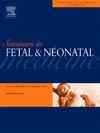Should granulocyte transfusion therapy for septic neutropenic neonates be resurrected?
IF 2.9
3区 医学
Q1 PEDIATRICS
引用次数: 0
Abstract
Nearly half a century ago, granulocyte transfusions were trialed in critically ill, septic, neutropenic neonates and showed improved survival when used concurrently with antimicrobials. Benefits were particularly noteworthy for Gram-negative and fungal infections. The introduction of granulocyte colony-stimulating factor into clinical medicine in 1991 and inherent problems associated with granulocyte procurement for transfusion caused granulocyte transfusions to become nearly extinct for this patient population. Simultaneous technological and clinical management advancements have enabled the survival of younger neonates, who are at the highest risk for neutropenia and neonatal sepsis. These infants have well-documented developmental deficiencies in the number and functional capabilities of their neutrophils compared to older patients. A continued surge in antimicrobial resistance and an increasing number of Gram-negative infections have created an urgent need for clinicians to rethink old therapies and consider new ones. This review details the evolution of granulocyte transfusions and whether they should be resurrected in neonatal patients.
粒细胞输注治疗感染性中性粒细胞减少新生儿是否应该恢复?
近半个世纪以前,粒细胞输注在危重症、脓毒症、中性粒细胞减少的新生儿中进行了试验,并在与抗菌素同时使用时显示出生存率的提高。对革兰氏阴性和真菌感染的益处尤其显著。粒细胞集落刺激因子于1991年引入临床医学,以及与输血粒细胞获取相关的固有问题导致粒细胞输注在这一患者群体中几乎绝迹。同时,技术和临床管理的进步使年轻新生儿的生存成为可能,他们是中性粒细胞减少症和新生儿败血症的最高风险。与老年患者相比,这些婴儿在中性粒细胞的数量和功能能力方面有充分的发育缺陷。抗菌素耐药性的持续激增和革兰氏阴性感染的数量不断增加,迫切需要临床医生重新考虑旧的治疗方法并考虑新的治疗方法。这篇综述详细介绍了粒细胞输注的演变,以及它们是否应该在新生儿患者中复活。
本文章由计算机程序翻译,如有差异,请以英文原文为准。
求助全文
约1分钟内获得全文
求助全文
来源期刊
CiteScore
6.40
自引率
3.30%
发文量
49
审稿时长
6-12 weeks
期刊介绍:
Seminars in Fetal & Neonatal Medicine (formerly Seminars in Neonatology) is a bi-monthly journal which publishes topic-based issues, including current ''Hot Topics'' on the latest advances in fetal and neonatal medicine. The Journal is of interest to obstetricians and maternal-fetal medicine specialists.
The Journal commissions review-based content covering current clinical opinion on the care and treatment of the pregnant patient and the neonate and draws on the necessary specialist knowledge, including that of the pediatric pulmonologist, the pediatric infectious disease specialist, the surgeon, as well as the general pediatrician and obstetrician.
Each topic-based issue is edited by an authority in their field and contains 8-10 articles.
Seminars in Fetal & Neonatal Medicine provides:
• Coverage of major developments in neonatal care;
• Value to practising neonatologists, consultant and trainee pediatricians, obstetricians, midwives and fetal medicine specialists wishing to extend their knowledge in this field;
• Up-to-date information in an attractive and relevant format.

 求助内容:
求助内容: 应助结果提醒方式:
应助结果提醒方式:


